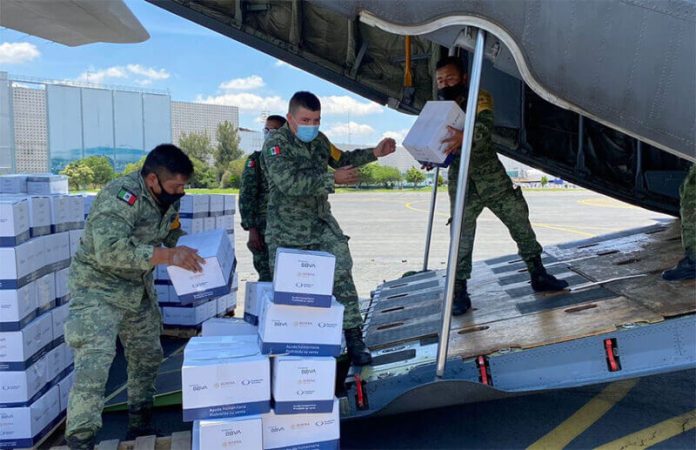Three planes of humanitarian aid sent by the Defense Ministry and the navy weighing 15.4 tonnes arrived in Haiti Monday morning, following the 7.2-magnitude earthquake which hit the Caribbean country on Saturday.
At least 1,419 people have died after the disaster struck the southwest of Latin America’s poorest country, and that figure is expected to climb, according to figures published by the The Washington Post quoting Haiti’s civil protection office. Heavy rains arrived this afternoon, complicating the recovery situation and worsening still the plight of newly homeless and injured, which AP reported at 6,000.
The country, which shares the island of Hispaniola with the neighboring Dominican Republic, was already reeling from the political turmoil of the assassination of President Jovenel Moïse last month amid economic and health crises. The capital Port-au-Prince was devastated by an earthquake 11 years ago.
The first two jets sent by the Defence Ministry arrived in the early morning and delivered 1,500 food packages which included antibacterial gel and garbage bags, medical aid, bottled water and powdered milk.
The third aircraft sent by the navy arrived at around 10:00 a.m. and transported food, and rescue and survival supplies: cots, blankets, hygiene kits, water filters, lamps, forklifts and shovels.
A joint press release by the navy, Defense Ministry and Foreign Ministry expressed solidarity with the people of Haiti. “The government of Mexico expresses its solidarity with a fraternal country of Latin America that is currently experiencing an urgent moment … constant communication will be maintained with the Haitian authorities,” it read.
The president addressed the delivery of aid in his morning press conference and said humanism should be put ahead of politics. “We decided to support Haiti and we will continue to do so because nothing human is alien to us … Forget about borders, we need to apply the … principle of universal fraternity: abandon selfishness, individualism,” President López Obrador said.
Marie-Helene L’Esperance, mayor of the harbor town of Pestel in Haiti, described the desperate situation on local radio. “We’re pleading for help … Every house was destroyed, there’s nowhere to live, we need shelters, medical help and especially water. We’ve had nothing for three days and injured victims are starting to die,” she said.
A physician in the seaside city of Baradères, David Geleste, told another local radio station that a medical catastrophe had ensued. “Medical help is urgently needed … It’s critical in the first two to four days. We have many injured with fractured limbs and need to mobilize basic materials like painkillers, bandages, braces. We have to perform urgent operations but don’t have the equipment,” he said.
With reports from El Financiero, AP News and The Washington Post
